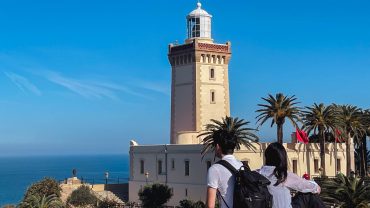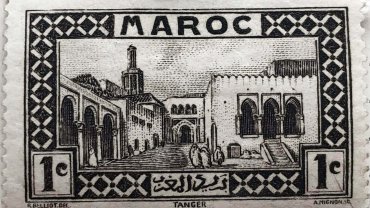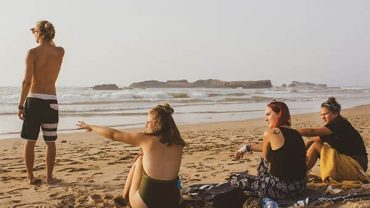Understanding Moroccan Arabic (Darija)
Moroccan Arabic, or Darija, is a unique dialect spoken in Morocco. It blends Arabic with Berber, French, Spanish, and Portuguese influences, reflecting the country’s rich cultural heritage. Unlike Modern Standard Arabic, Darija is mainly spoken in daily life, media, and pop culture. Its distinct pronunciation and vocabulary make it stand out from other Arabic dialects. Learning Darija provides deeper insights into Moroccan culture and enriches the travel experience in this vibrant North African nation.
Essential Greetings
- Salam Alaikum (Peace be upon you) – A universal greeting used throughout the Arab world.
- Wa Alaikum Salam (And upon you be peace) – The appropriate response to “Salam Alaikum.”
- Sbah el Khir (Good morning) – A friendly morning greeting.
- Msaa el Khir (Good evening) – Used to greet someone in the evening.
Common Courtesies
- Shukran (Thank you) – Always appreciated after receiving help or service.
- Afak (Please) – Essential when asking for assistance or making a request.
- Smeh li (Excuse me) – Useful in crowded places or when needing to get someone’s attention.
- Mezyan (Good) – Can be used to express satisfaction or agreement.
Travel-Specific Phrases
Navigating a new country requires a few key phrases to ensure you can ask for directions, use transportation, and find accommodations.
Directions
- Fin kayn… (Where is…?) – Use this to ask for directions to specific places.
- Shnu smit had sheare? (What is the name of this street?) – Helpful when navigating city streets.
- Imshee nishan (Go straight) – Directing someone or understanding directions given to you.
Transportation
- Shhal Taman? (How much is the fare?) – Essential for taking taxis or other paid transportation.
- Wakha tmshi… (Can you go to…?) – Useful when telling a driver your destination.
- Mchi Bchwiya (Don’t hurry) – If you prefer a slower, more scenic route.
Accommodations
- Wach kayn… (Is there…?) – Use this to inquire about the availability of rooms or other services.
- Fin albit dlyali? (Where is my room?) – Finding your assigned room in hotels or hostels.
- Wach kadiro Lftour? (Do you serve breakfast?) – Important for planning your mornings.
Dining Out
Moroccan cuisine is a highlight of any visit, and knowing how to navigate menus and order food enhances your culinary adventures.
Ordering Food and Drinks
- Bghit naakul… (I would like to eat…) – Start your order with this phrase.
- Atini Menu… (Give me the Menu…) – Direct yet polite way to ask for a specific item like a Menu fo example.
Dietary Restrictions
- Ana nabati (I am vegetarian) – Crucial for those with dietary preferences.
- Ma nakoolsh lham (I don’t eat meat) – To ensure your meal adheres to your diet.
- Ana endi hassasiya (I am allergic) – Important for those with food allergies.
Shopping Phrases
Exploring Moroccan markets, or souks, is an unforgettable experience. Being able to communicate with vendors enhances this adventure.
Bargaining Tips
- Shhal had shi? (How much is this?) – Initiate the bargaining process.
- Naqas Taman (Can you lower the price?) – Start your negotiation.
- Ghali Bzaf (Very Expensive) – Use this to express your limit.
Common Shopping Phrases
- Bghit… (I want…) – Clearly state what you are looking for.
- Jarrab hada (Try this) – Often used by vendors offering samples or trying to attract customers.
- Mzyan bzaf (Very good) – Compliment the quality of items.
Emergency Phrases
In case of an emergency, knowing how to seek help in the local language is invaluable.
Seeking Help
- Aana fi mushekil (I am in trouble) – Use this to quickly alert someone.
- Afak, Saaedni (Please, help me) – Direct plea for assistance.
- Fayn lbulis (Where is the police?) – To find the nearest police station or officer.
Medical Emergencies
- Aina Fspitar? (Where is the hospital?) – Essential for locating medical help.
- Ana marid (I am sick) – Informing someone of your condition.
Cultural Insights
Understanding cultural nuances can make a significant difference in how you are perceived and treated.
Understanding Moroccan Culture
Moroccan culture is rich and diverse, influenced by a blend of Arab, Berber, and French traditions. Respecting these cultural norms is crucial.
Respectful Interactions
- Always use your right hand – Whether eating, offering items, or greeting someone, the right hand is considered more respectful.
- Modest dress – In Morocco, you have the freedom to wear what you like. While some advice suggests dressing conservatively, Moroccans are generally accepting, especially in cities. However, modest clothing is appreciated in traditional or rural areas, particularly at religious sites.
Practice Tips
To become proficient in Moroccan Arabic, consistent practice is key. Here are some effective strategies.
Effective Ways to Learn Moroccan Arabic
- Language exchange partners – Practicing with a native speaker is invaluable.
- Daily practice – Dedicate a few minutes each day to learning new phrases.
- Use language apps – Apps like Duolingo or Memrise offer structured lessons.
Useful Resources
- Moroccan Arabic textbooks – Provide comprehensive learning tools.
- Online forums – Engage with other learners for tips and practice.
- Travel phrasebooks – Handy for quick reference on the go.




Comment (0)